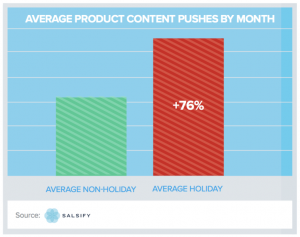A recent article in the Harvard Business Review, written by Bruce Pfau, titled, What Do Millennials Really Want From Work, is quite revealing. According to Pfau, there is little in the way of empirical research to support this billion-dollar theory that millennials are all that unique.
“On the contrary, a growing body of evidence suggests that employees of all ages are much more alike than different in their attitudes and values at work. To the extent that any gaps do exist, they amount to small differences that have always existed between younger and older workers throughout history and have little to do with the Millennial Generation per se,” notes Pfau.
So what does this mean for businesses? That depends. Don’t change a thing if you are already doing the following:
Putting People First
Everyone talks about it. They say, “Our people are our most important asset.” That’s just a throw-away line for most companies. If this were really true, then how do you explain why so many companies lay people off the moment their stock shares start to slide? Wouldn’t they instead, look at how they can grow their revenues, while preserving human capital?
Focusing On Purpose
People are constantly making fun of the millennials’ search for purpose in their work. Usually those are the same people who are too lazy to find happiness or too risk adverse to try something new, when what they are doing isn’t working.
I recently had the pleasure of listening to my client, Catherine D’Amato, CEO of the Greater Boston Food Bank, talk about her path to becoming a food banker. D’Amato spoke about her executive team, who all came knocking on her door in pursuit of purpose. Not one of these people was a millennial. The lesson here is that purpose isn’t this new-age thing founded by the millennials. It’s something that is important to most workers.
Providing Regular Feedback
Everyone seems to think millennials are performance crazy, as we keep hearing stories about their constant need for feedback. Think back to when you first entered the workforce. You probably craved feedback, as did I. Most workers still desire feedback. The difference is that Gen Xers and Boomers have given up on this concept, since it hasn’t seemed to materialize. It’s the millennials’ turn to make some noise. Perhaps they will have better luck.
Developing Your People
Most people in the workplace want to improve their status. Yes, even those 50-something people you may have on your payroll. Improving one’s status doesn’t necessarily mean yearning for a promotion. Growing in place is important for many. Take a look at the career development opportunities you are providing for your people. Are most, if not all, tailored for millennials? If so, think about how to change this so that everyone benefits.
And for those of you who aren’t quite measuring up (and you know who you are), take time to reflect as to why this is so. Then pick one or two areas to focus on and move them forward a mile, rather than trying to move everything forward an inch.
Let’s stop talking about how different millennials are in your workplace. These generalizations are false and are distracting employers from the real work that needs to be done—creating organizations where all employees love to come to work and where customers love to do business.
Business & Finance Articles on Business 2 Community(21)
Report Post



